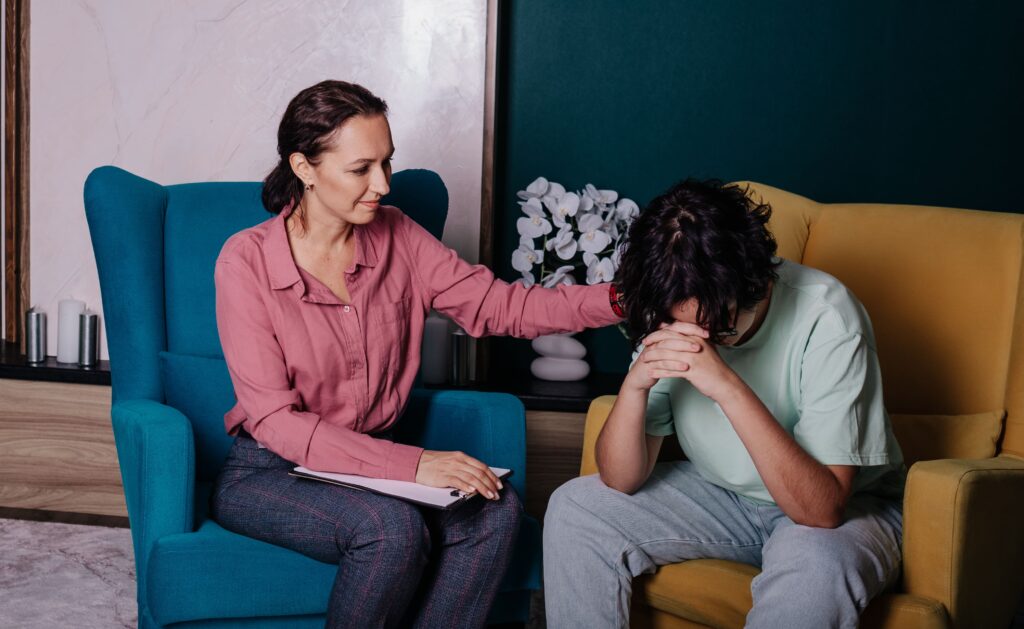
Have you ever felt like you needed someone to just listen — really listen — without judgment? Maybe you’ve been wrestling with feelings of anxiety, stress, or sadness, but you’re not sure where to turn. That’s where individual therapy comes in. It’s a dedicated space where you can explore your thoughts and emotions with a professional who’s there just for you.
In this guide, we’ll walk through what individual therapy is, who it helps, the benefits you can expect, and how to find the right therapist — whether you’re in Gurgaon looking for in-person support or anywhere in India seeking online sessions.
What Is Individual Therapy?
Individual therapy, sometimes called individual counseling or one-on-one therapy, is a personalized approach to mental health care. Instead of meeting in groups, you meet privately with a trained therapist who works with you to understand your unique challenges and strengths.
These sessions create a safe, confidential environment where you can talk about things you might not share elsewhere. This could be anything from managing anxiety and depression to dealing with trauma or everyday stress.
Client Reflection:
“When I first started therapy, I wasn’t sure what to expect. But having someone to talk to who didn’t judge me made all the difference. It felt like a weight was lifted off my shoulders.” — Pankaj Gupta, 28, Chandigarh
Who Can Benefit from Individual Therapy?
The truth is, anyone can benefit from individual therapy. It’s not just for people with diagnosed mental health conditions — it’s also for anyone who wants to understand themselves better or navigate life’s tough moments.
People commonly seek individual therapy for:
- individual counseling for anxiety
- individual counseling for depression
- Stress and burnout
- Trauma recovery
- Relationship challenges
- Self-esteem and identity questions
Because therapy is tailored to your needs, it works for people of all ages and backgrounds.
How Does Individual Therapy Work?
In your first few sessions, your therapist will get to know you — your history, current struggles, and what you hope to achieve. From there, they’ll work with you to set goals and choose approaches that fit your personality and situation.
Many therapists use techniques like Cognitive Behavioral Therapy (CBT), Mindfulness, or Acceptance and Commitment Therapy (ACT), among others. These are evidence-based methods shown to help people change negative thought patterns and develop healthier coping skills.
Client Reflection:
“My therapist helped me see how my thoughts were fueling my anxiety. Learning new ways to challenge those thoughts made a huge difference in how I feel day-to-day.” — Harish Garg, 34, online client
In-Person vs. Online Individual Therapy
Whether you’re in Gurgaon or somewhere else in India, therapy options have expanded greatly thanks to technology. Here’s a quick look at the differences:
- In-Person Therapy: For many, meeting face-to-face provides a comforting, grounded experience. It’s easier to build rapport, and the environment is controlled for privacy and focus.
- Online Therapy: Convenient and accessible, online individual therapy sessions let you connect with your therapist from anywhere. This option is great if you have a busy schedule or live in a place with limited access to mental health professionals.
Both formats can be effective. Research shows that individual psychotherapy online can be just as beneficial as in-person sessions, especially when done with trained, licensed professionals in a secure environment.
What Are the Benefits of Individual Therapy?
Therapy isn’t just about solving problems — it’s about growth, understanding, and healing. Here are some key benefits of individual therapy for mental health people often experience:
- A Safe Space to Be Heard: Many people don’t have someone they can open up to fully. Therapy offers that.
- Better Emotional Awareness: You learn to recognize and understand your feelings, which helps in managing them.
- New Coping Skills: From stress management to handling triggers, therapy gives you tools that last a lifetime.
- Improved Relationships: Understanding yourself better helps improve how you relate to others.
- Greater Self-Acceptance: Therapy encourages self-compassion, which can reduce harsh self-criticism.

Common Concerns About Individual Therapy
It’s normal to wonder if therapy will really help or if it’s the right fit. Here are some common questions:
“Will I be judged?”
A therapist’s job is to listen without judgment. The goal is to create a supportive environment where you feel safe to express yourself.
“What if I don’t know where to start?”
Therapists guide the process, so you don’t have to have all the answers upfront. They help you discover what’s important for you to work on.
“How long does therapy take?”
That varies widely. Some people find relief in a few sessions, others may continue longer for deeper growth.
How to Find the Right Individual Therapist
Finding the right therapist can feel overwhelming, but a few tips can help:
- Look for Credentials: Licensed clinical psychologists or counselors with relevant experience matter.
- Check Specializations: If you’re dealing with anxiety, trauma, or other specific issues, look for therapists with expertise in those areas.
- Consider Practicalities: Location, session formats (online or in-person), and availability all count.
- Trust Your Feelings: Feeling comfortable and heard is essential — it’s okay to try a few therapists before deciding.

When to Consider Individual Therapy
If you find yourself struggling with ongoing stress, anxiety, or mood changes that interfere with your daily life, therapy is worth exploring. It’s also helpful if you’ve experienced trauma or if you’re facing life transitions like career changes, loss, or relationship shifts.
Conclusion
Reaching out for therapy is a brave and meaningful step toward well-being. At Core Mind Wellness, we’re here to support you every step of the way — whether in our Gurgaon center or online from anywhere in India.
If you’re ready to explore how individual therapy can support your mental health journey, don’t hesitate to call or WhatsApp us. Your well-being matters — and you don’t have to walk this path alone.
FAQ
Q1: Is individual therapy only for serious mental illness?
No, it’s for anyone seeking support, self-understanding, or help with life’s challenges.
Q2: How soon can I expect results from therapy?
Results vary. Some notice changes quickly, while for others, it’s a gradual process.
Q3: Can online therapy be as effective as in-person?
Yes, studies show online therapy is often just as effective, especially with trained professionals.Q4: How do I prepare for my first therapy session?
Just come as you are. Being open and honest helps your therapist tailor the sessions to your needs.

